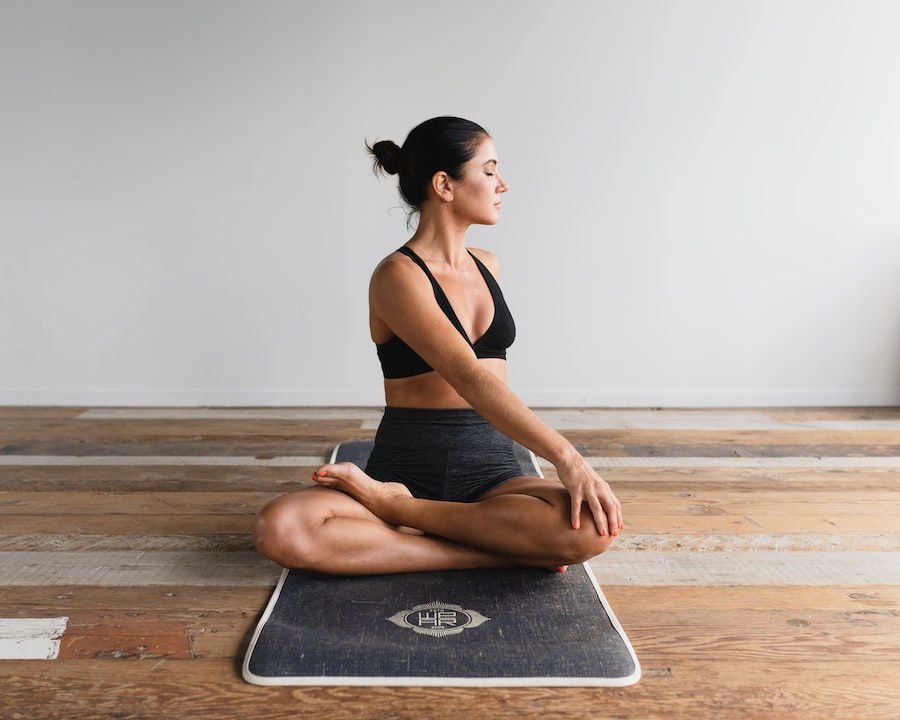Discovering the Power of Self-Care: A Journey to Wellness at the Local Wellness Center

The Local Wellness Center is a community-based facility that offers a wide range of services to support individuals in their journey towards overall wellness. From physical fitness classes to mental health counseling, the center aims to provide a holistic approach to self-care. The center recognizes the importance of self-care in maintaining a healthy and balanced lifestyle, and offers various resources and programs to help individuals prioritize their well-being.
Self-care is an essential aspect of maintaining overall wellness. It involves taking deliberate actions to care for oneself physically, mentally, and emotionally. Self-care is not selfish or indulgent; rather, it is a necessary practice that allows individuals to recharge, rejuvenate, and prevent burnout. By prioritizing self-care, individuals can better manage stress, improve their mental health, and enhance their overall quality of life.
Key Takeaways
- Local wellness centers offer resources and support for individuals seeking to improve their overall well-being.
- Self-care is essential for maintaining good mental health and reducing stress.
- Regular physical activity can improve mood and reduce symptoms of anxiety and depression.
- Healthy eating habits can provide the body with the necessary nutrients for optimal functioning.
- Mindfulness and meditation can help individuals manage stress and improve overall well-being.
Understanding the Importance of Self-Care
Self-care is often misunderstood as being selfish or self-indulgent. However, it is important to recognize that self-care is not about neglecting responsibilities or prioritizing one’s own needs above others. Instead, self-care is about recognizing and meeting one’s own needs in order to be able to show up fully for others.
Self-care is crucial for both physical and mental health. Physically, self-care practices such as regular exercise, healthy eating habits, and adequate sleep can help prevent chronic illnesses and promote overall well-being. Mentally, self-care activities such as mindfulness and meditation can reduce stress, improve focus and concentration, and enhance emotional well-being.
Exploring the Benefits of Self-Care for Mental Health
Self-care plays a vital role in maintaining good mental health. Engaging in self-care activities can help reduce symptoms of anxiety and depression, improve mood, and increase overall life satisfaction. By taking time for oneself and engaging in activities that bring joy and relaxation, individuals can better manage stress and prevent burnout.
There are various self-care activities that can benefit mental health. For example, engaging in hobbies or creative outlets can provide a sense of accomplishment and fulfillment. Spending time in nature or practicing mindfulness can help reduce stress and promote a sense of calm. Additionally, seeking support from a therapist or counselor can be an important form of self-care for those struggling with mental health issues.
The Role of Physical Activity in Self-Care
| Metrics | Values |
|---|---|
| Number of minutes of physical activity per day | 30 |
| Percentage of adults meeting physical activity guidelines | 23% |
| Reduction in risk of chronic diseases with regular physical activity | 25% |
| Improvement in mental health with regular physical activity | 50% |
| Percentage of healthcare costs related to physical inactivity | 5% |
Physical activity is an essential component of self-care. Regular exercise has numerous physical and mental health benefits, including reducing the risk of chronic diseases, improving cardiovascular health, and boosting mood and energy levels. Incorporating physical activity into a self-care routine can help individuals feel more energized, reduce stress, and improve overall well-being.
There are many types of physical activity that can be incorporated into a self-care routine. From going for a walk or jog to attending fitness classes or participating in team sports, there are endless options to choose from. It is important to find activities that are enjoyable and sustainable, as this will increase the likelihood of making exercise a regular part of one’s self-care practice.
Nourishing Your Body with Healthy Eating Habits
Nutrition plays a crucial role in overall wellness. A healthy diet can provide the body with the necessary nutrients to function optimally, boost the immune system, and prevent chronic diseases. Incorporating healthy eating habits into a self-care routine is essential for maintaining physical and mental well-being.
Tips for incorporating healthy eating habits into a self-care routine include meal planning and preparation, choosing whole foods over processed ones, and listening to one’s body’s hunger and fullness cues. Additionally, practicing mindful eating can enhance the experience of eating and promote a healthier relationship with food.
The Power of Mindfulness and Meditation in Self-Care

Mindfulness and meditation are powerful tools for self-care. Mindfulness involves paying attention to the present moment without judgment, while meditation is a practice of training the mind to focus and redirect thoughts. Both practices can have significant benefits for mental health and overall well-being.
Incorporating mindfulness and meditation into a self-care routine can help reduce stress, improve focus and concentration, and enhance emotional well-being. Tips for incorporating these practices include setting aside dedicated time each day for mindfulness or meditation, finding a quiet and comfortable space, and starting with short sessions and gradually increasing the duration.
Finding Balance in Your Life Through Self-Care
Finding balance is essential for maintaining overall wellness. When individuals neglect self-care and prioritize other aspects of their lives, such as work or caregiving responsibilities, they are at risk of burnout and decreased well-being. Prioritizing self-care allows individuals to recharge and find balance in their lives.
Tips for finding balance through self-care include setting boundaries, saying no when necessary, and scheduling regular self-care activities. It is important to recognize that self-care is not a luxury, but a necessity for maintaining overall wellness.
Building Resilience and Coping Skills through Self-Care
Self-care can play a crucial role in building resilience and coping skills. Engaging in self-care activities can help individuals develop healthy coping mechanisms, reduce stress levels, and improve overall mental health. By prioritizing self-care, individuals can better navigate challenges and setbacks, and recover more quickly from difficult situations.
Examples of self-care activities that promote resilience and coping skills include journaling, practicing gratitude, engaging in hobbies or creative outlets, and seeking support from loved ones or professionals when needed. By incorporating these activities into a self-care routine, individuals can enhance their ability to cope with stressors and build resilience.
Connecting with Others in a Supportive and Positive Environment
Social support is an important aspect of maintaining overall wellness. Engaging in self-care activities that promote social connection can help individuals feel supported, reduce feelings of loneliness, and enhance overall well-being. By prioritizing self-care, individuals can create opportunities for meaningful connections with others.
Examples of self-care activities that promote social connection include joining a club or group with shared interests, volunteering in the community, or participating in group therapy or support groups. By engaging in these activities, individuals can foster a sense of belonging and create a supportive and positive environment.
Embracing a Sustainable Self-Care Practice for Long-Term Wellness
Creating a sustainable self-care practice is essential for long-term wellness. It is important to prioritize self-care as a regular part of one’s routine, rather than viewing it as an occasional indulgence. By making self-care a priority, individuals can reap the long-term benefits of improved physical and mental health.
Tips for creating a sustainable self-care practice include setting realistic goals, starting small and gradually increasing the frequency or duration of self-care activities, and seeking support from professionals or loved ones when needed. It is important to remember that self-care looks different for everyone, and it is essential to find activities that are enjoyable and sustainable.
In conclusion, self-care is an essential aspect of maintaining overall wellness. By prioritizing self-care, individuals can improve their physical and mental health, reduce stress levels, and enhance their overall quality of life. The Local Wellness Center offers a wide range of services and resources to support individuals in their self-care journey. It is important to prioritize self-care and seek support from the Local Wellness Center to ensure long-term wellness.
Check out this article on the benefits of mindfulness in daily life for inner peace. It provides valuable insights and techniques to incorporate mindfulness into your everyday routine. Whether you’re looking to reduce stress, improve focus, or enhance overall well-being, this article offers practical tips and guidance. Click here to read more: https://healthydietdoctor.com/mindfulness-daily-life-inner-peace/